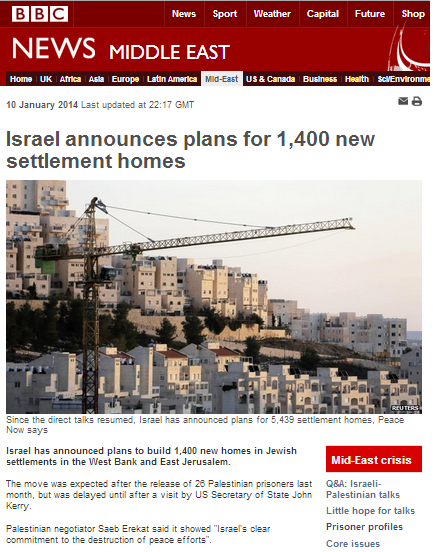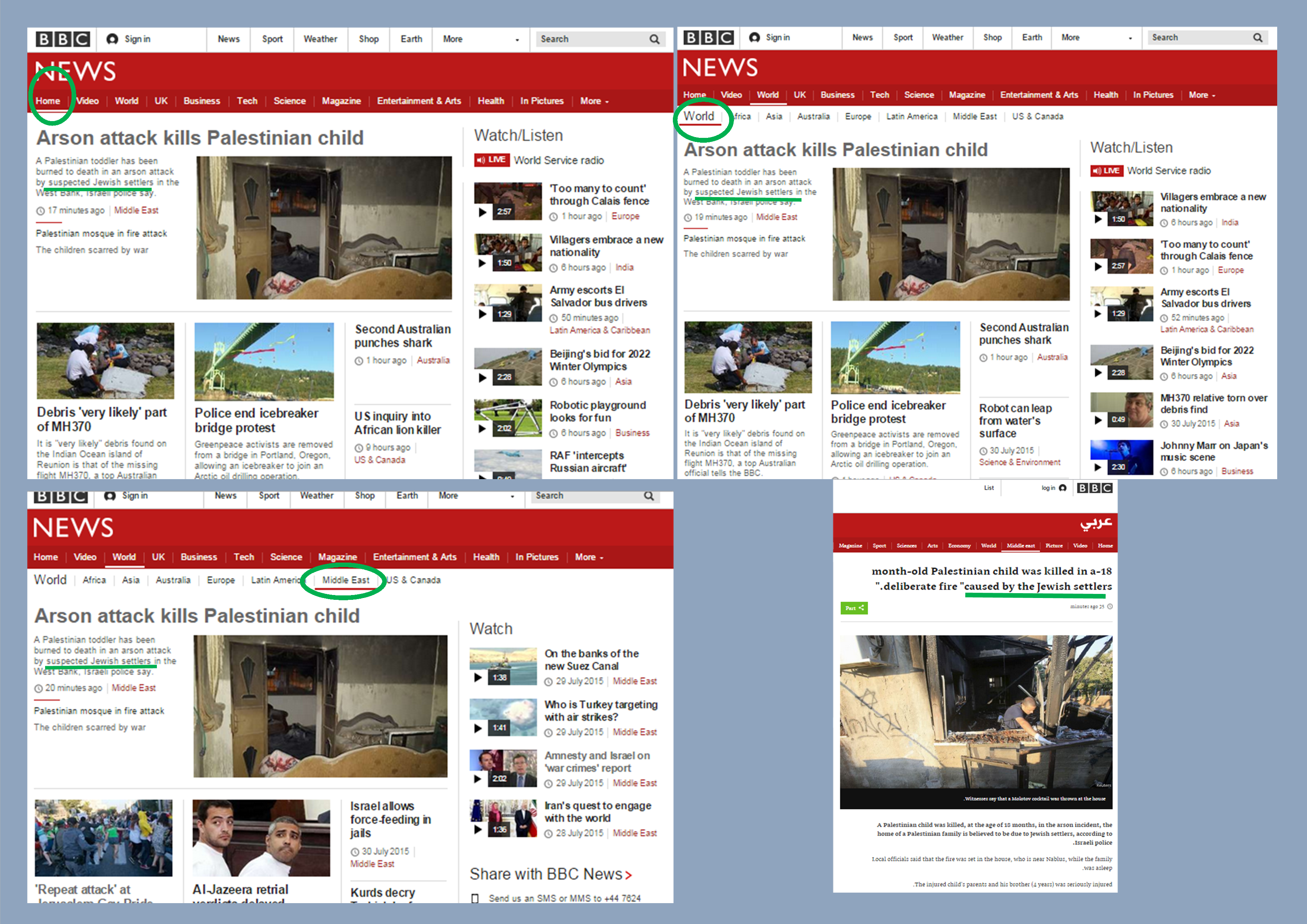On January 10th 2014 the BBC News website informed its audiences that “Israel announces plans for 1,400 new settlement homes“, 801 of which it described as being situated in “West Bank settlements” and 532 in “East Jerusalem”. A week later, the same message was conveyed to BBC audiences once more.
On February 5th 2014 the BBC News website announced to its audiences that “Israel approves 558 East Jerusalem settlement homes“.
On February 18th 2014 the BBC programme ‘Hardtalk’ provided a platform for Saeb Erekat to claim that since the beginning of negotiations between Israel and the PLO at the end of July 2013, 10,500 housing units had been “added” (which of course any reasonable viewer would take to mean built) and host Stephen Sackur even confirmed Erekat’s false PLO propaganda to BBC audiences.
Erekat: “They have ….10,500 housing units. They have added 10,500 housing units existing settlements in ..”
Sackur: “Yes they have.”
Erekat: “…the supposed to be Palestinian state – which is four times the natural growth of New York – in the past four months and you’re telling me this is the behaviour of a government that wants to make two-state solution?”
On March 4th the BBC News website informed audiences that:
“….Israel released statistics showing a large increase in the pace of new settlement construction in the West Bank in 2013 over the year before.”
It failed, however, to put those statistics into their appropriate context.
On April 2nd 2014 the BBC News website promoted the idea that 708 reissued building tenders in “the Jewish settlement of Gilo on the southern outskirts of East Jerusalem” had hindered the flailing peace negotiations and those same tenders were also mentioned in the same context in an article which appeared on April 9th and in another on April 11th.
As the pre-fixed deadline for the negotiations between Israel and the PLO approached, the BBC continued both to neglect to inform audiences that limitations on Israeli building had not been part of the agreed terms of the negotiations and at the same time to promote the notion that construction was one of the reasons for the lack of success of the talks.
“Talks between the two sides were already troubled after repeated disagreements over settlement building and the release of prisoners.”
As we see, BBC audiences were led to believe that thousands – or even tens of thousands – of new housing units came into being in Judea & Samaria and specific areas of Jerusalem during the period of negotiations and specifically during the first quarter of 2014, with no attempt made to clarify to audiences the all-important difference between tenders and actual construction.
Newly released statistics however show that during the first three months of 2014, a grand total of one hundred and fifty-seven building projects were completed throughout Judea and Samaria and two hundred and thirty-two begun. Throughout the whole of Jerusalem – not just in the neighbourhoods the BBC insists on describing as “settlements” – 902 units were completed and 1,941 begun in the same quarter. The figures represent a drop of 76.4% in construction starts in Judea & Samaria compared to the first quarter of 2013 and also show that most of the 2013 construction starts in that region took place before negotiations between Israel and the PLO began.
Were the BBC interested in accurate and impartial representation of the topic of Israeli building to its audiences, it would of course report realistically on the number of houses and apartments actually built instead of using (sometimes repeatedly) on-paper-only tenders to further the advancement of politically motivated messaging.
Part two of this post will address the subject of the BBC’s latest reporting on building tenders.




